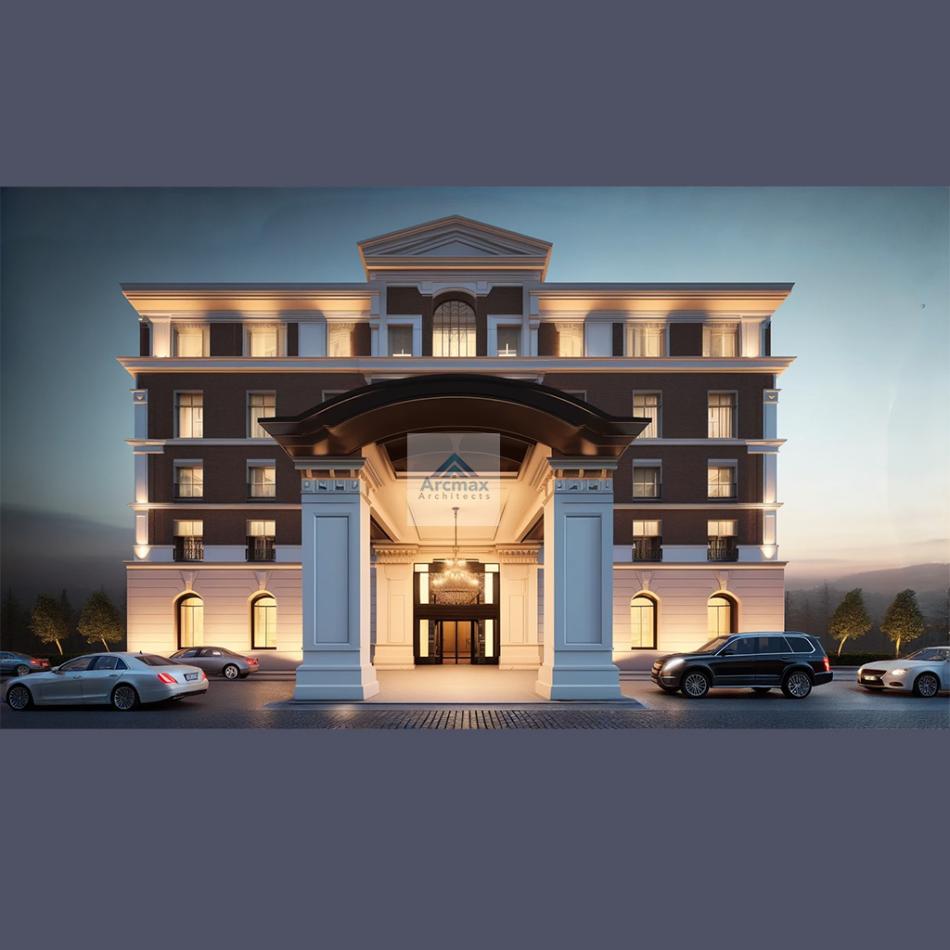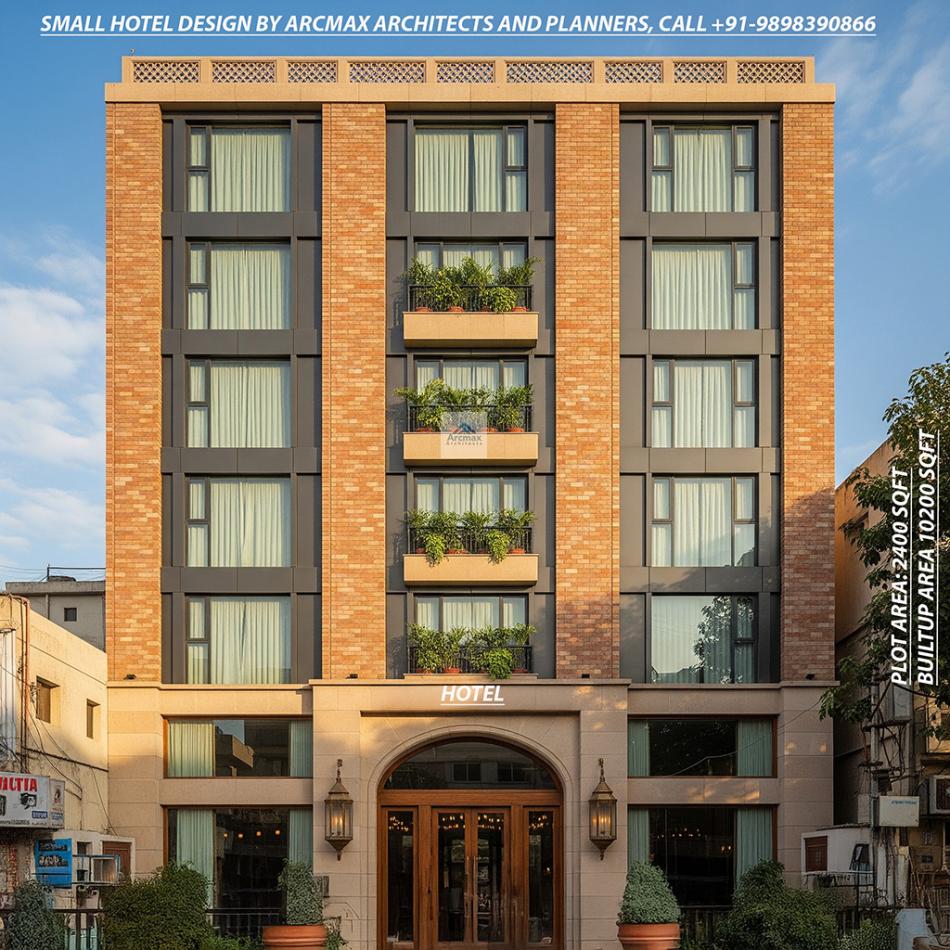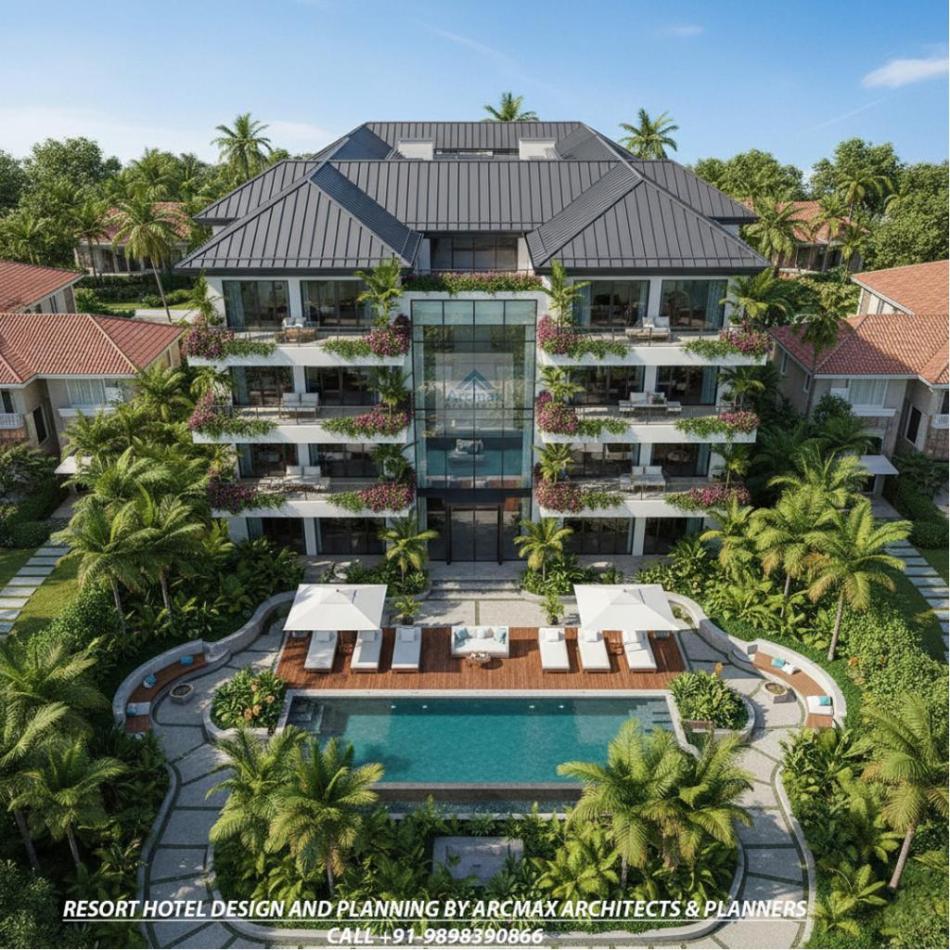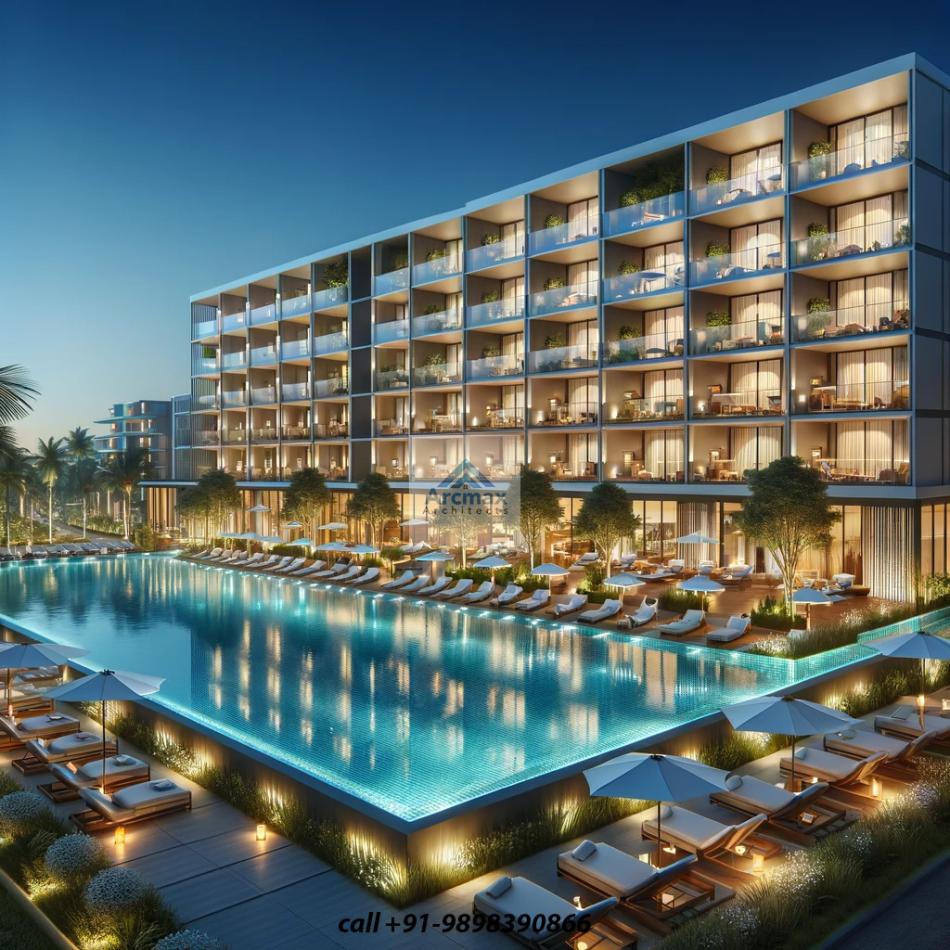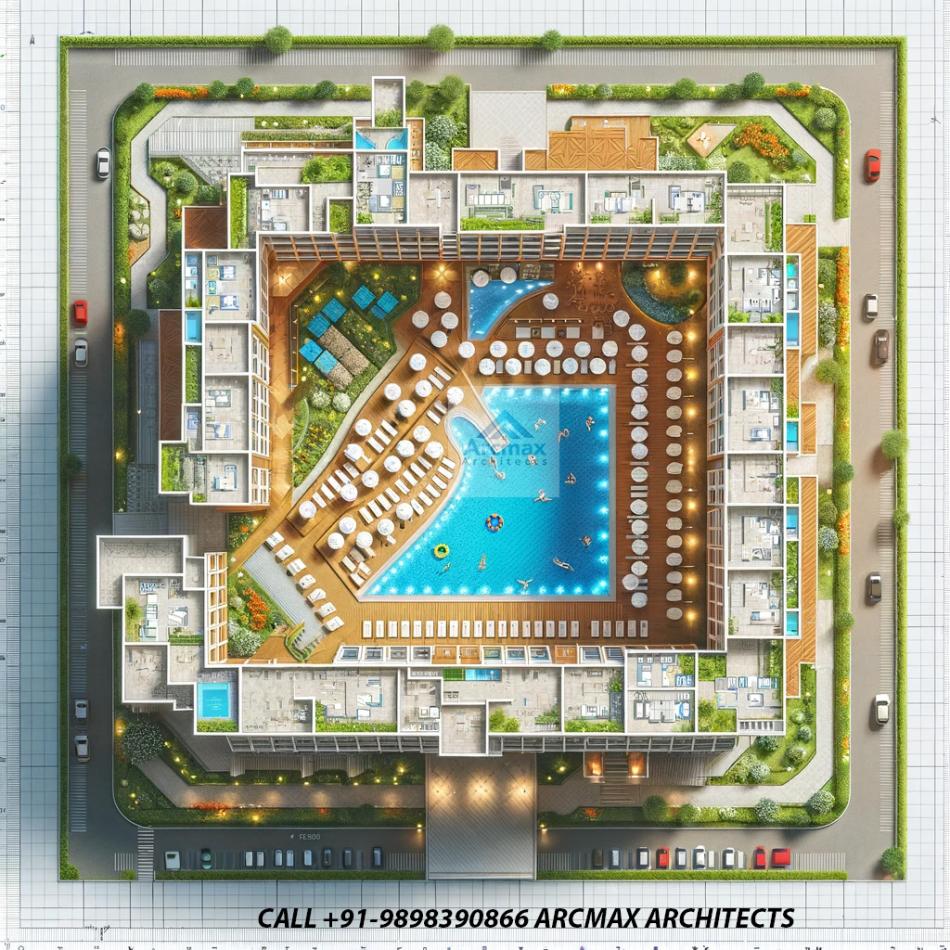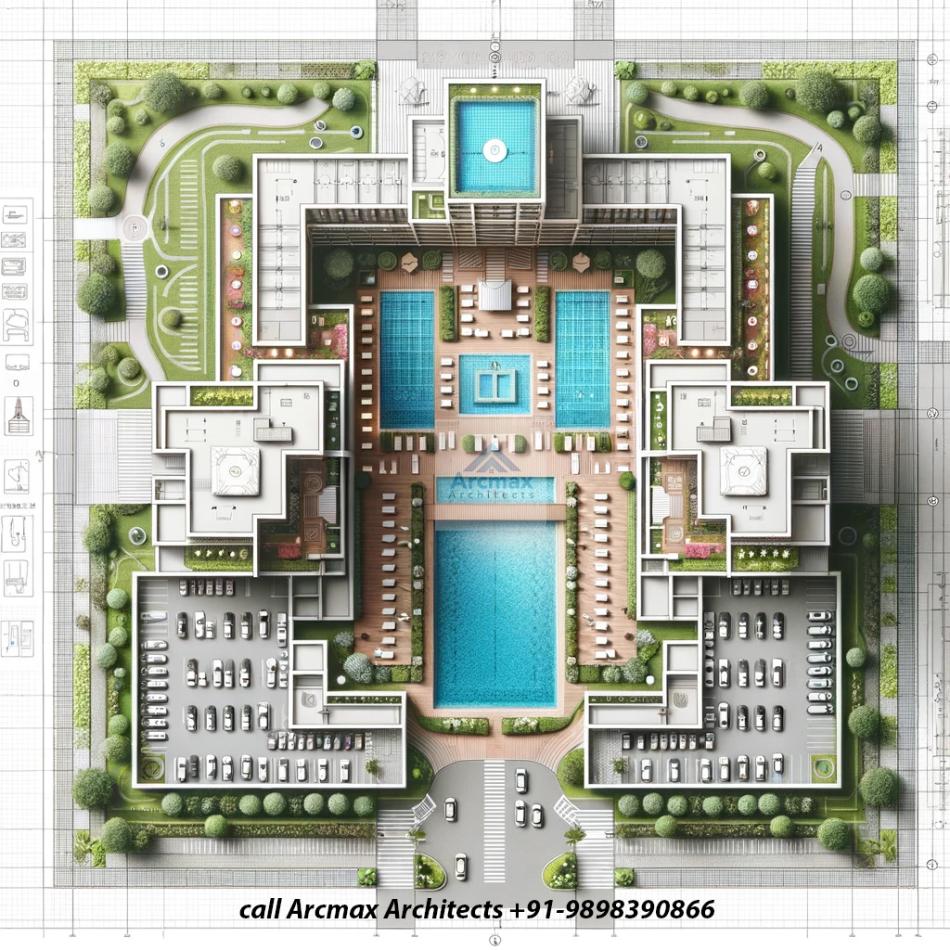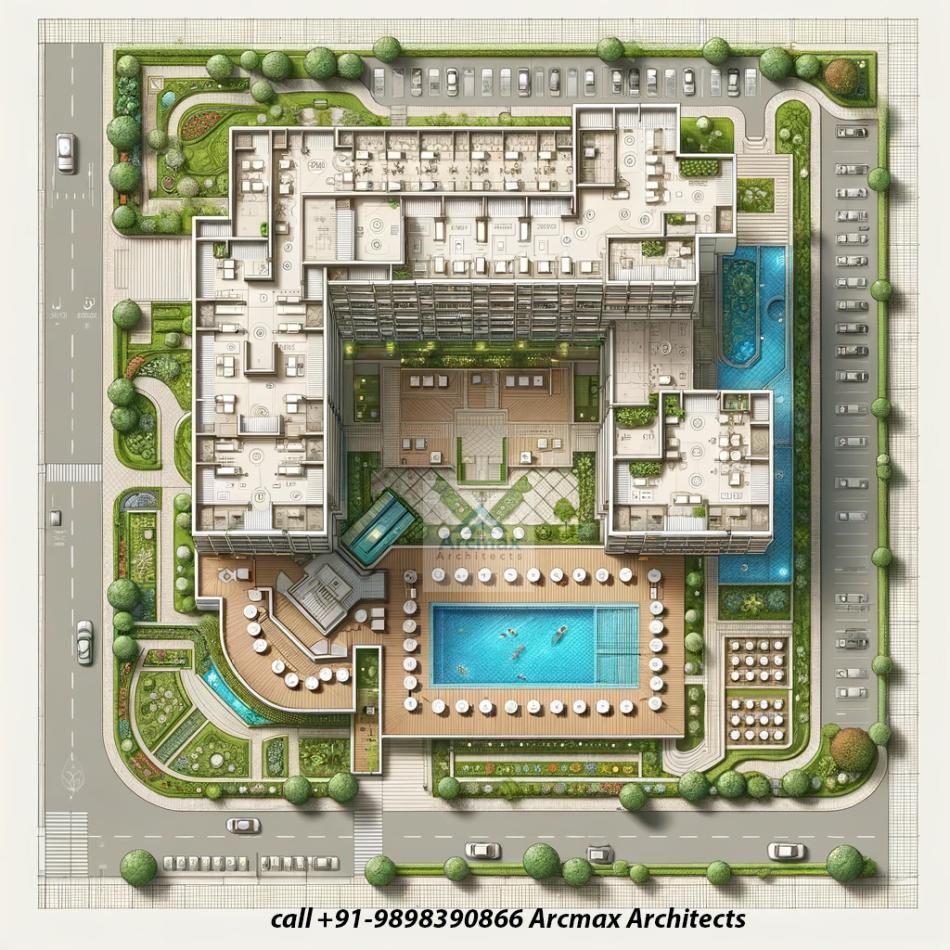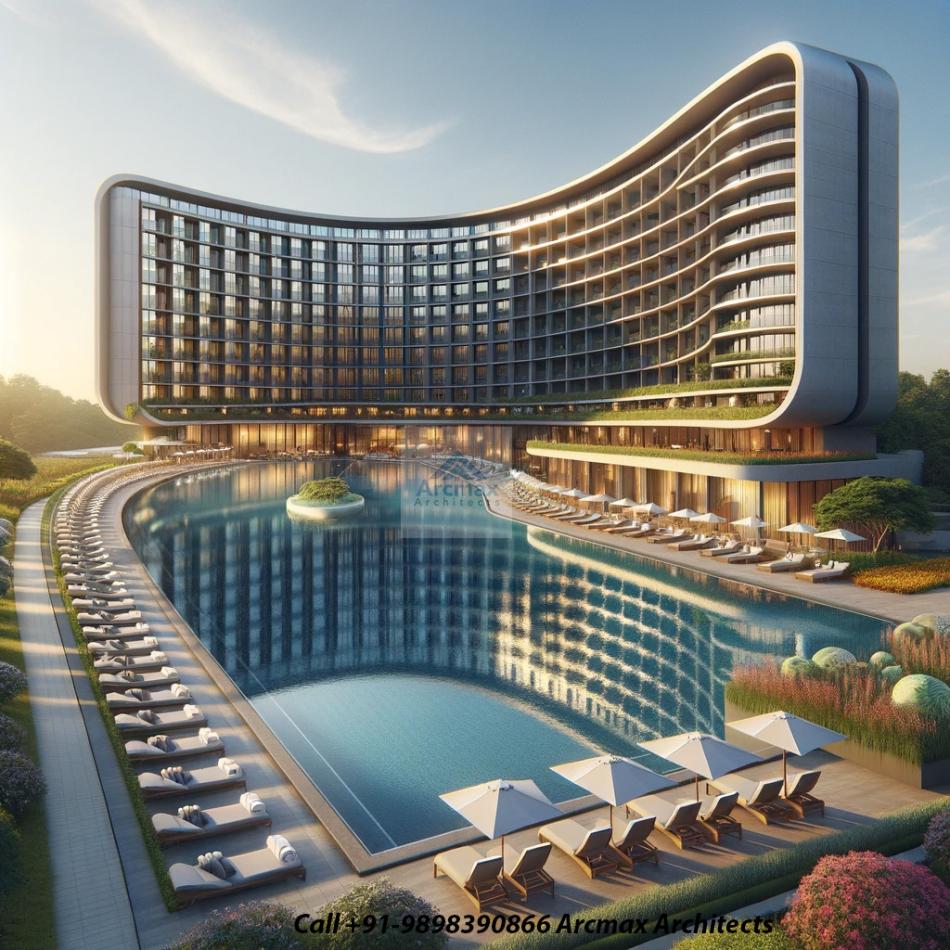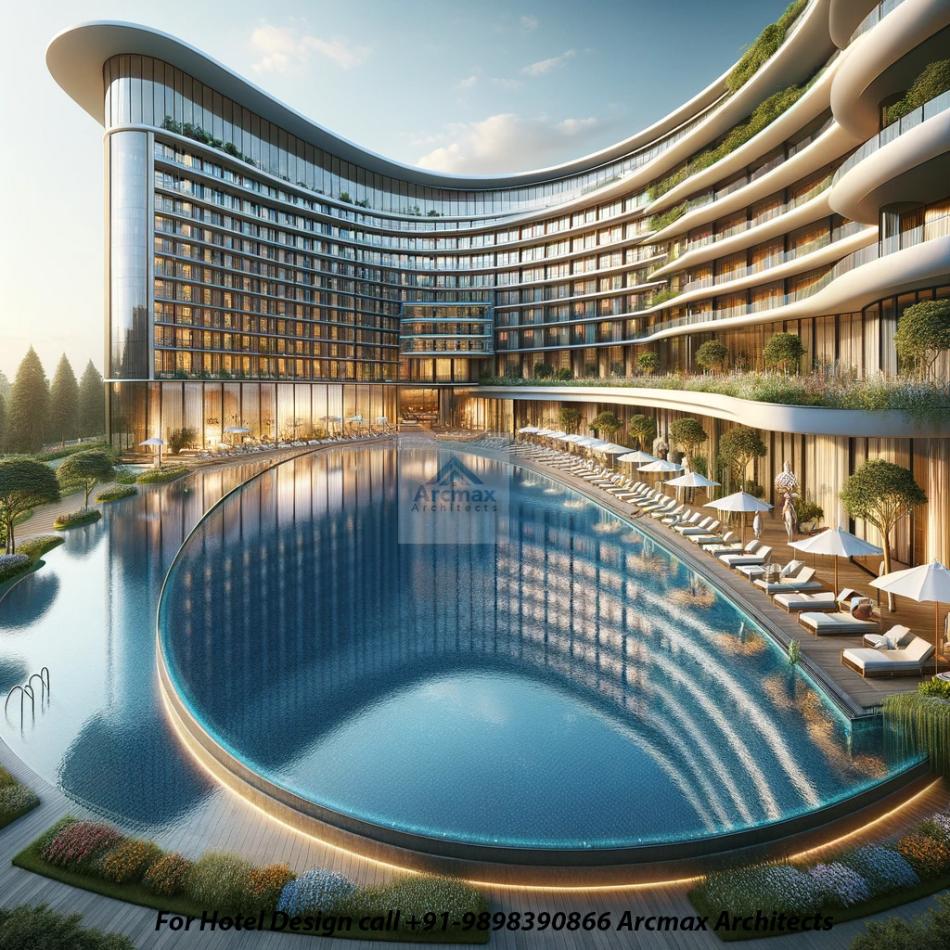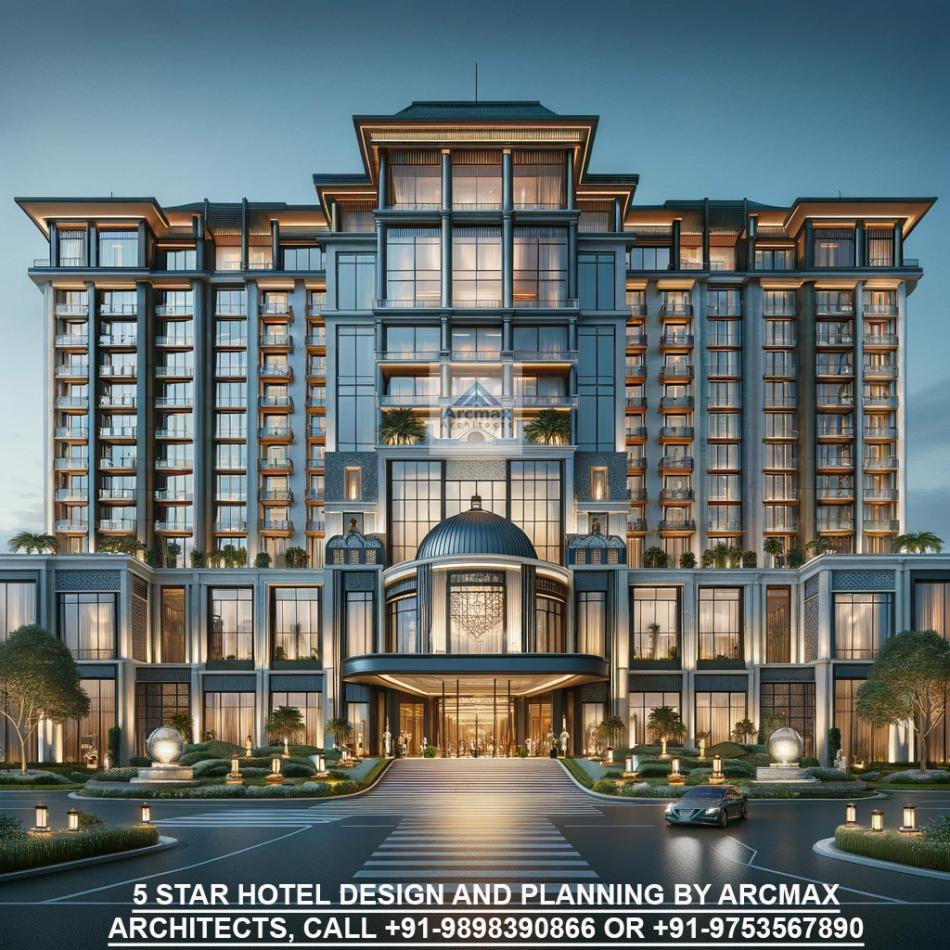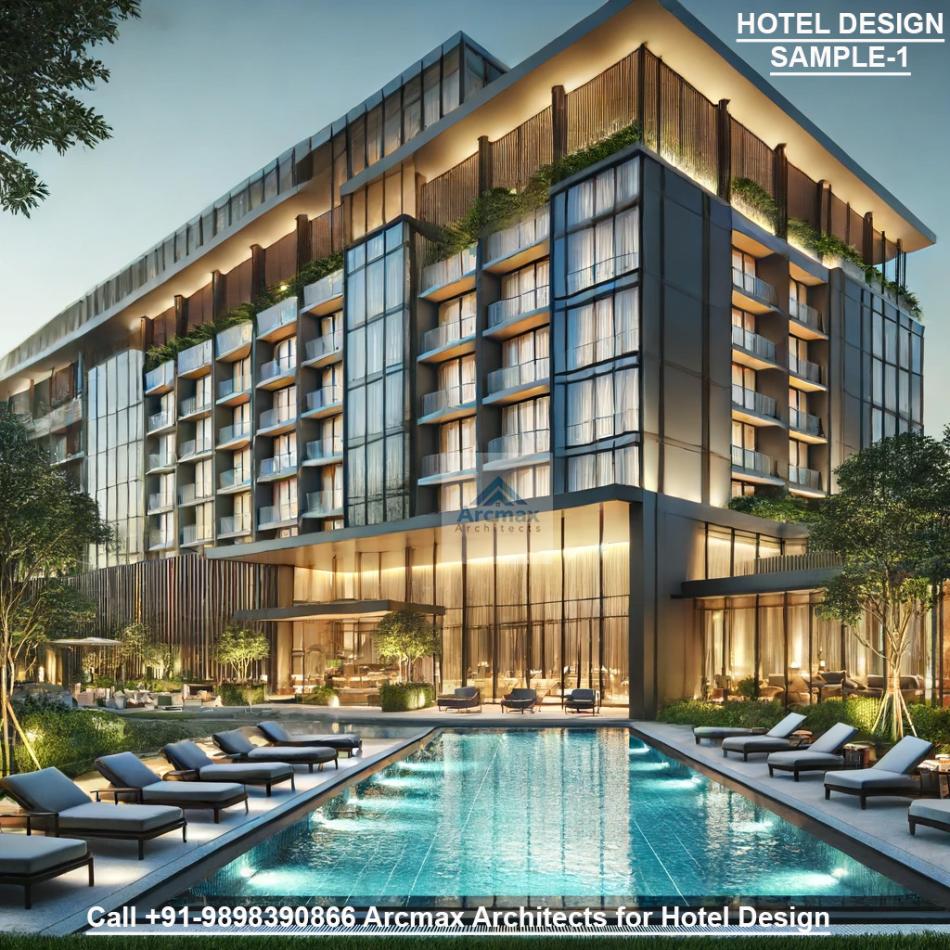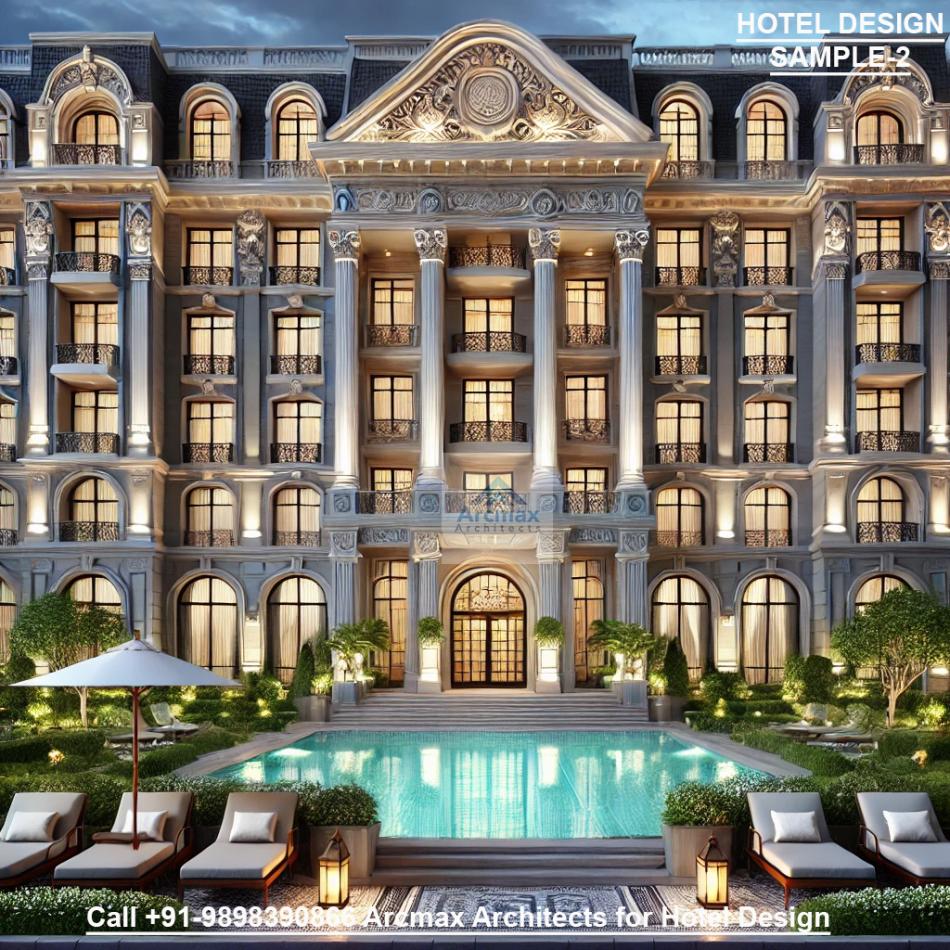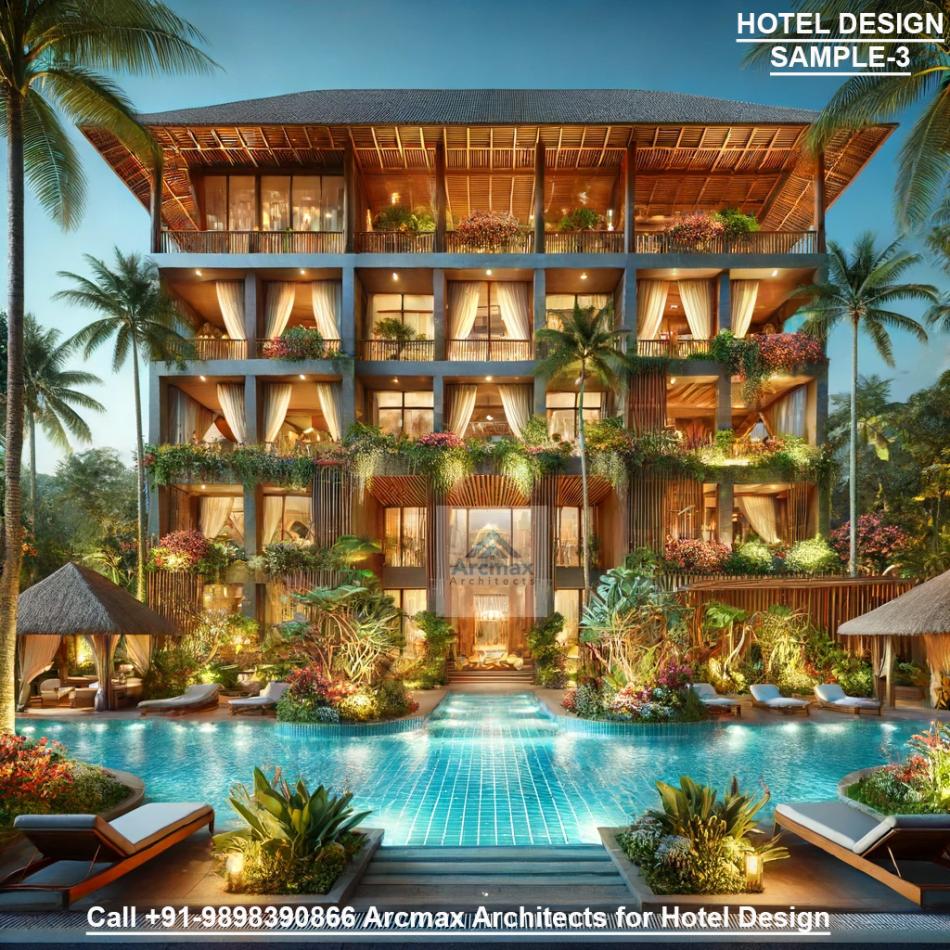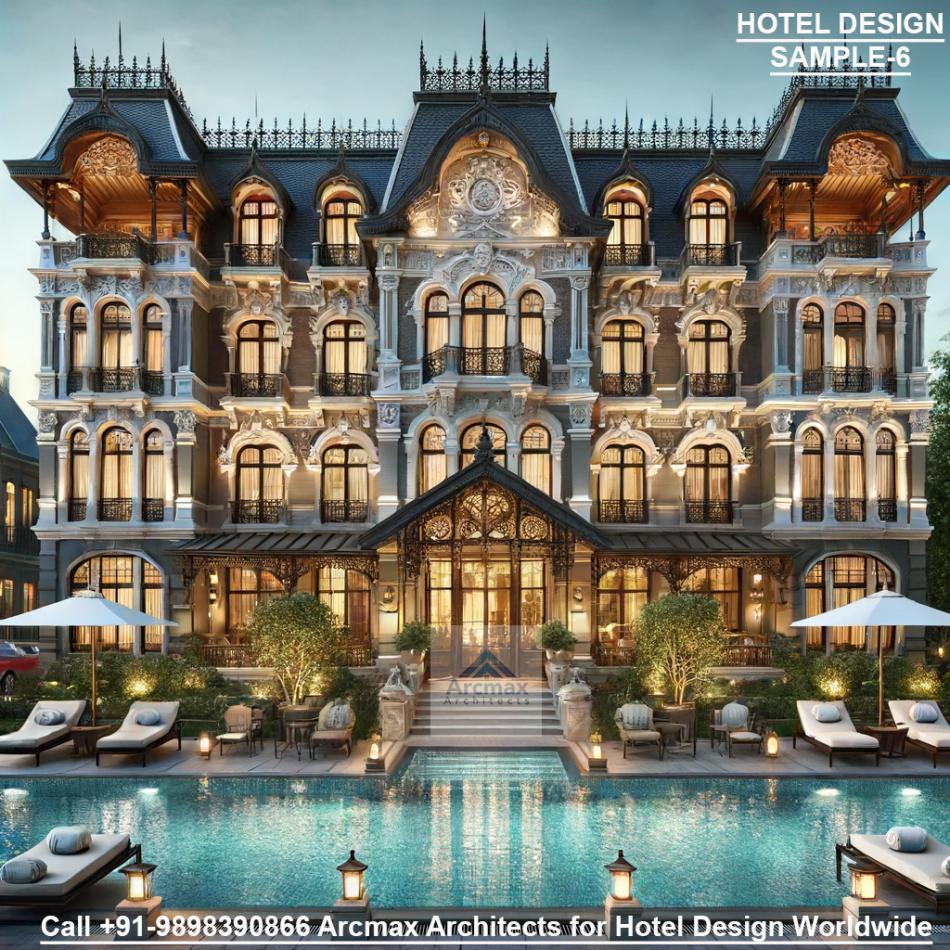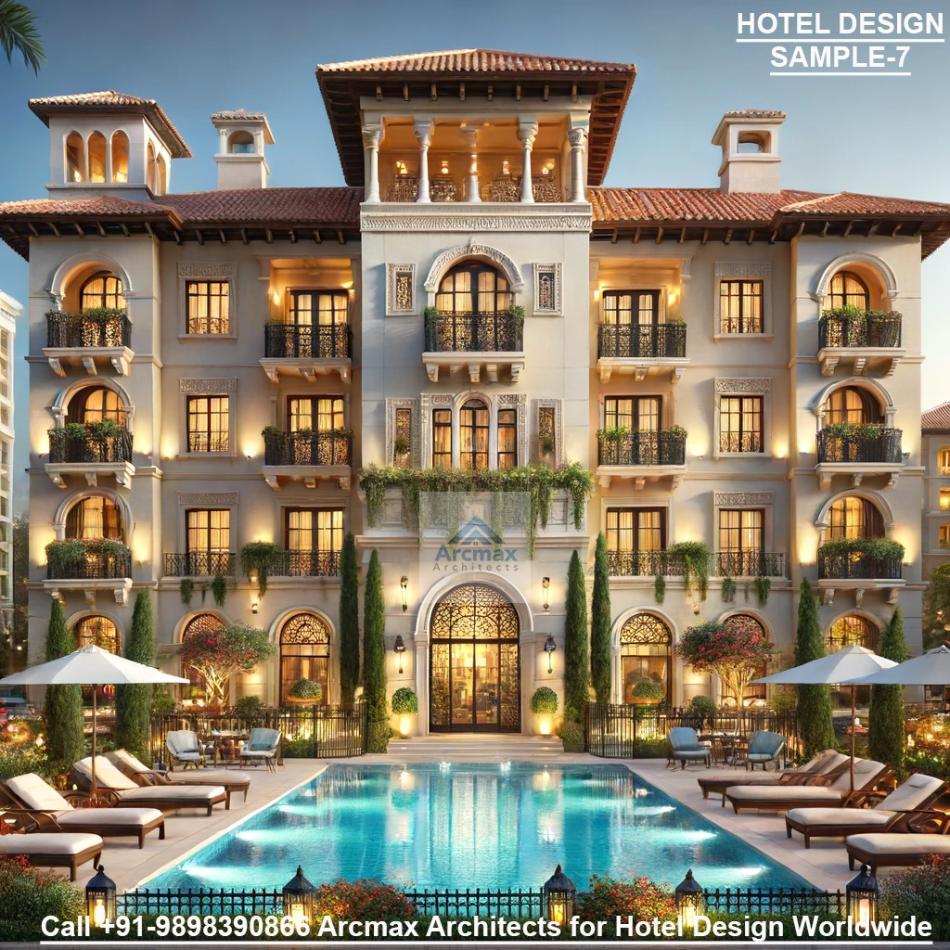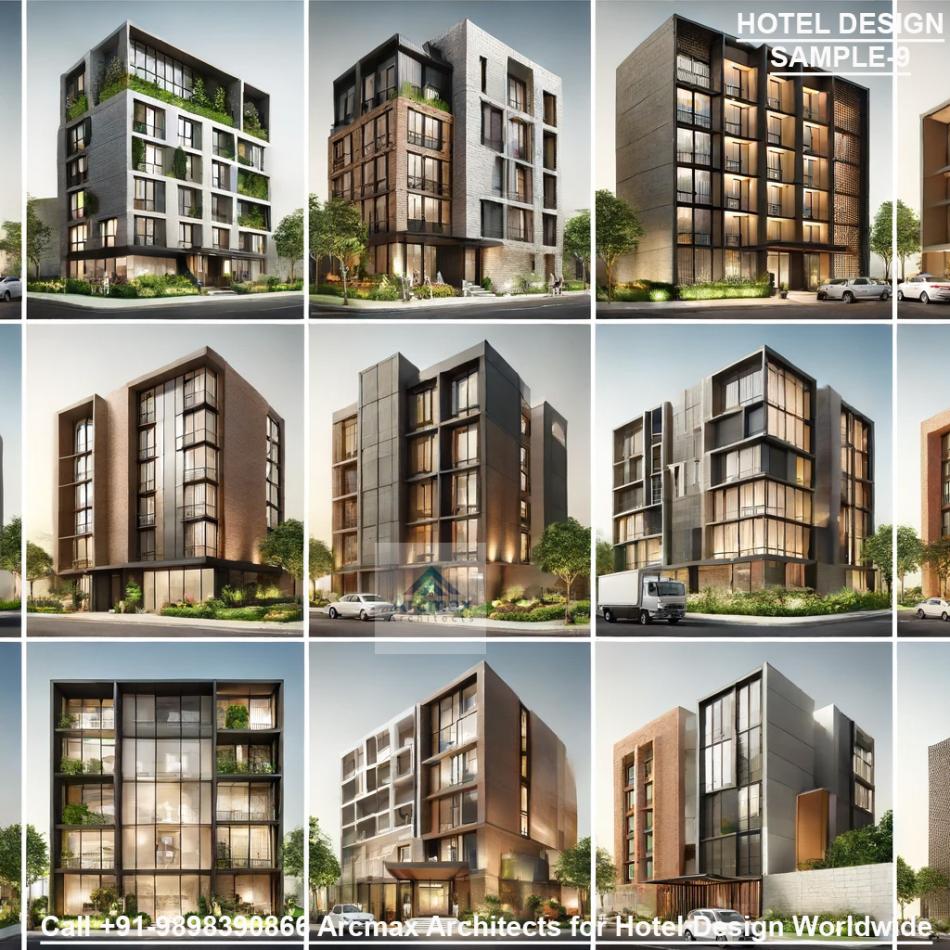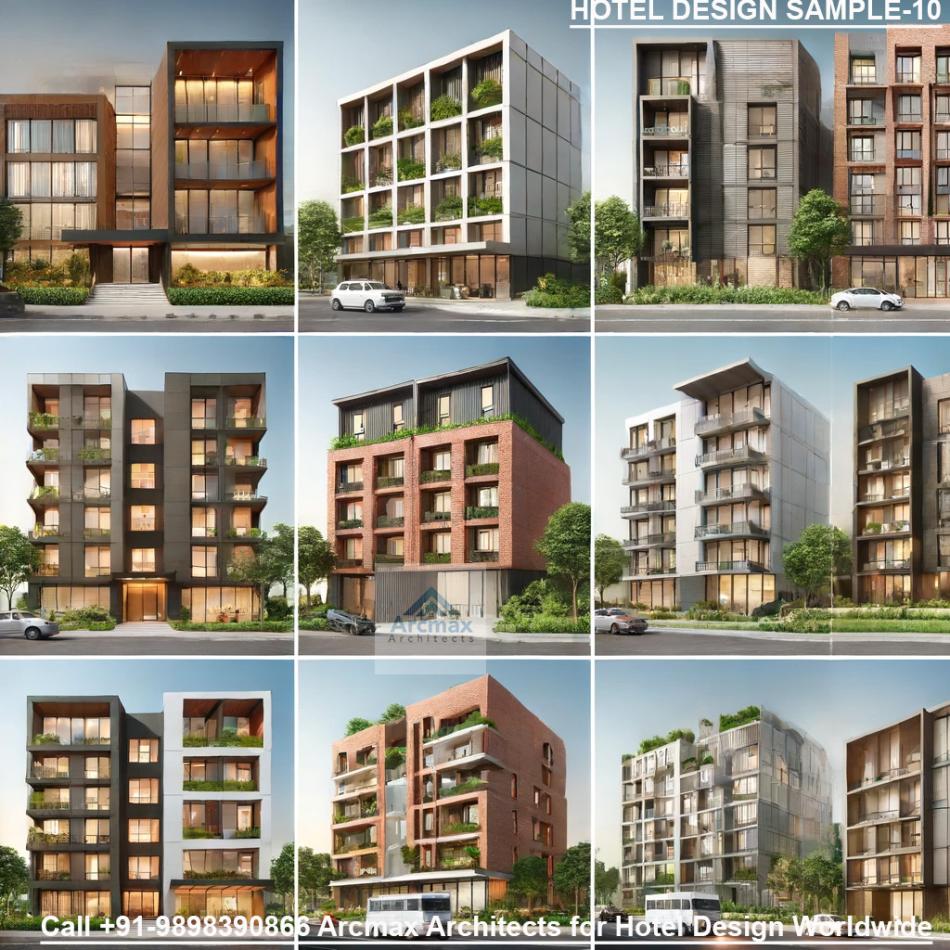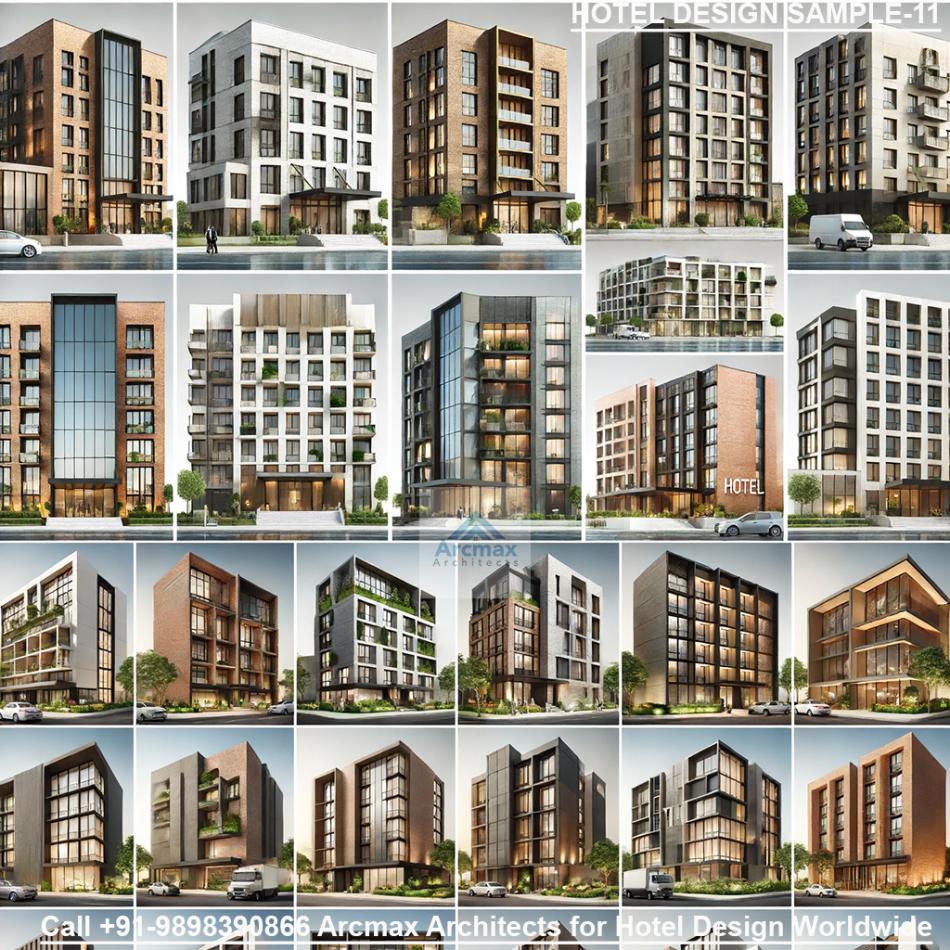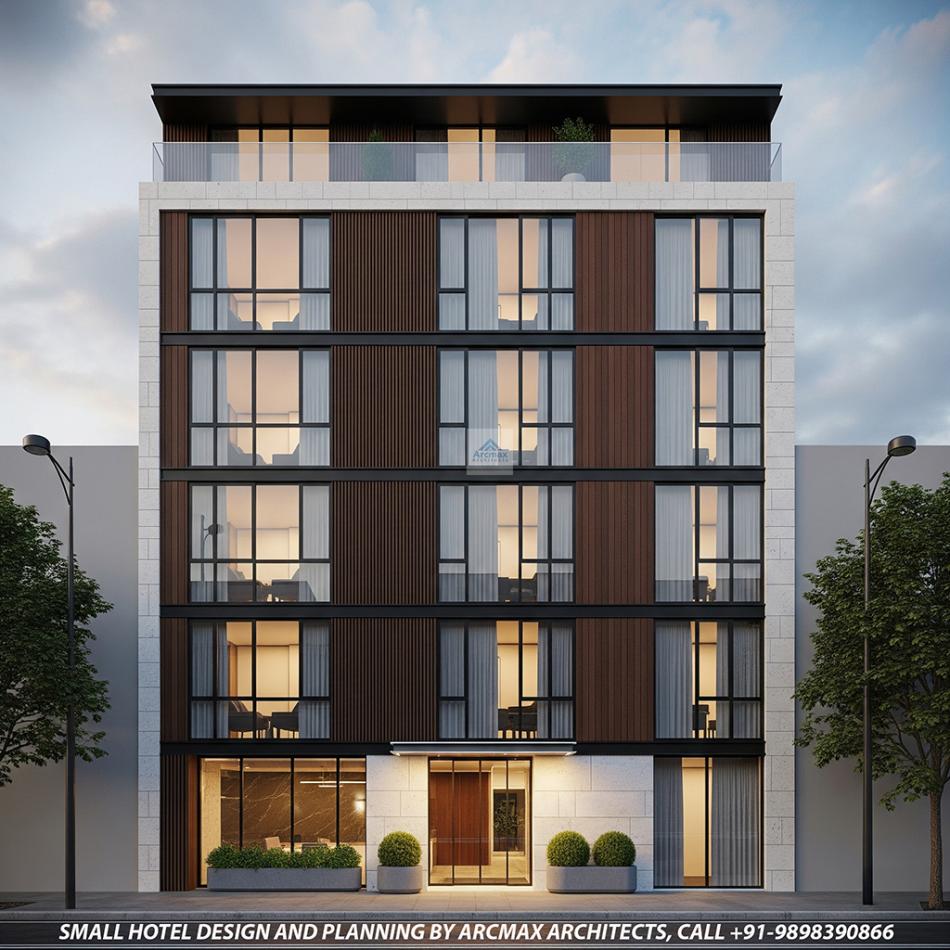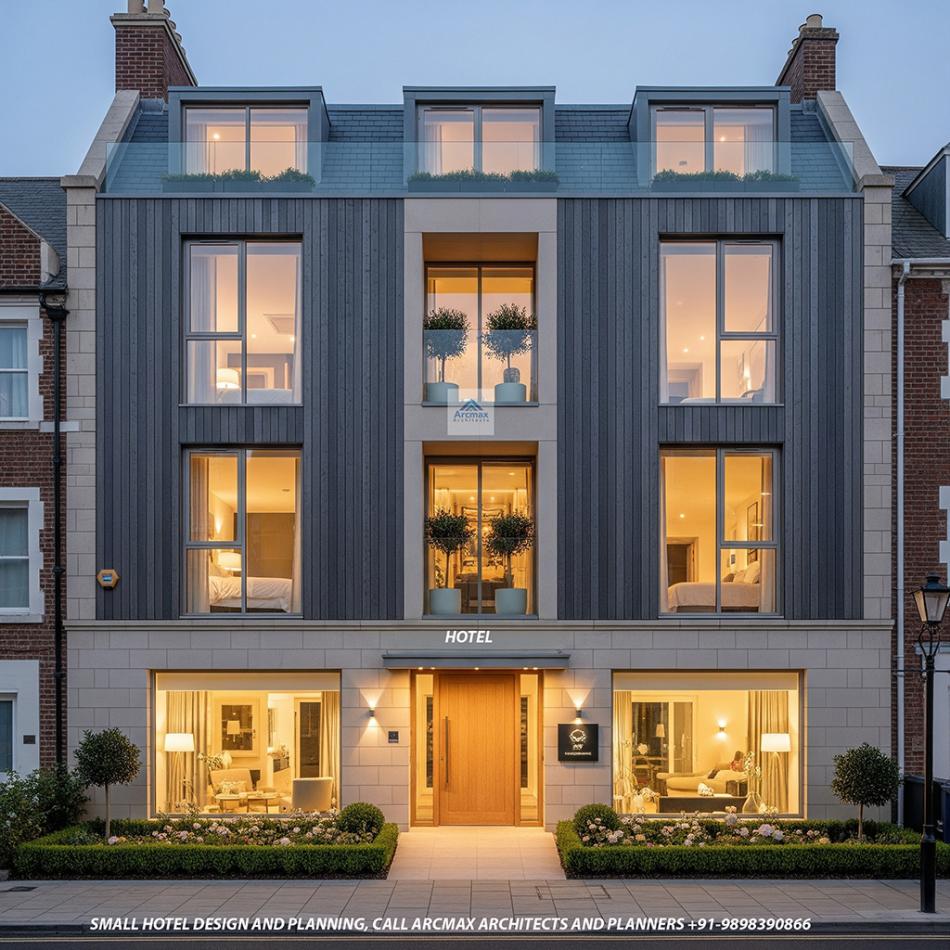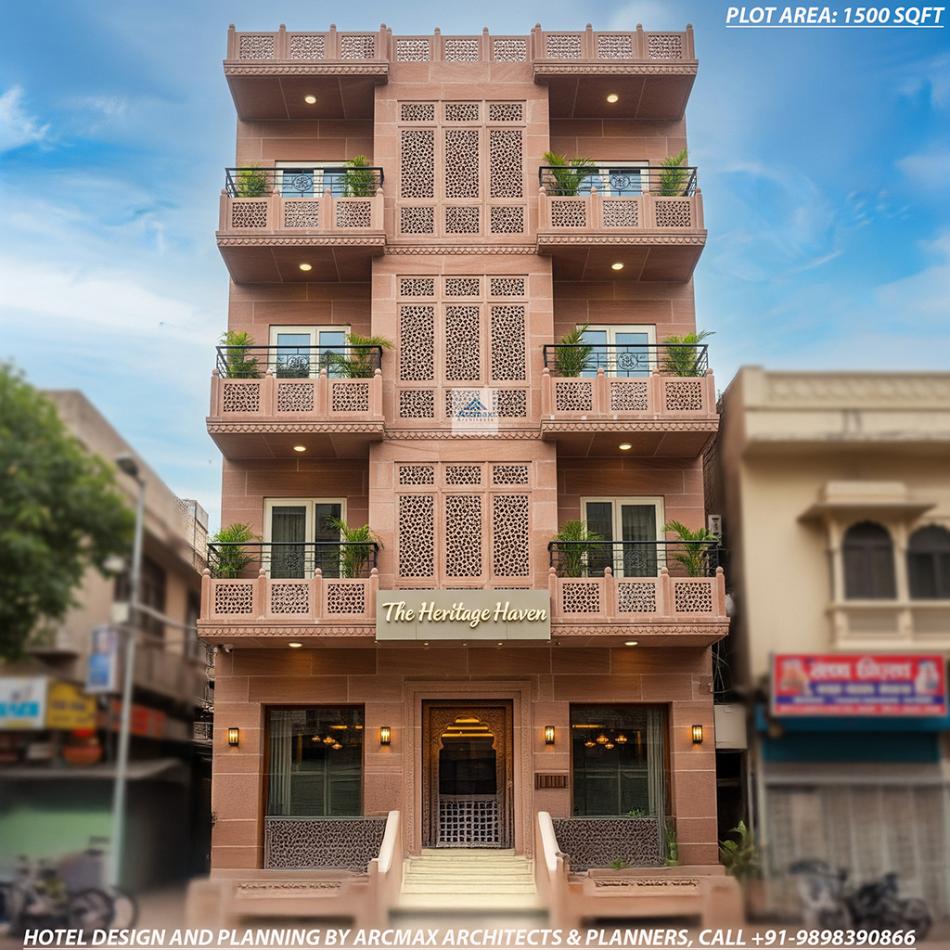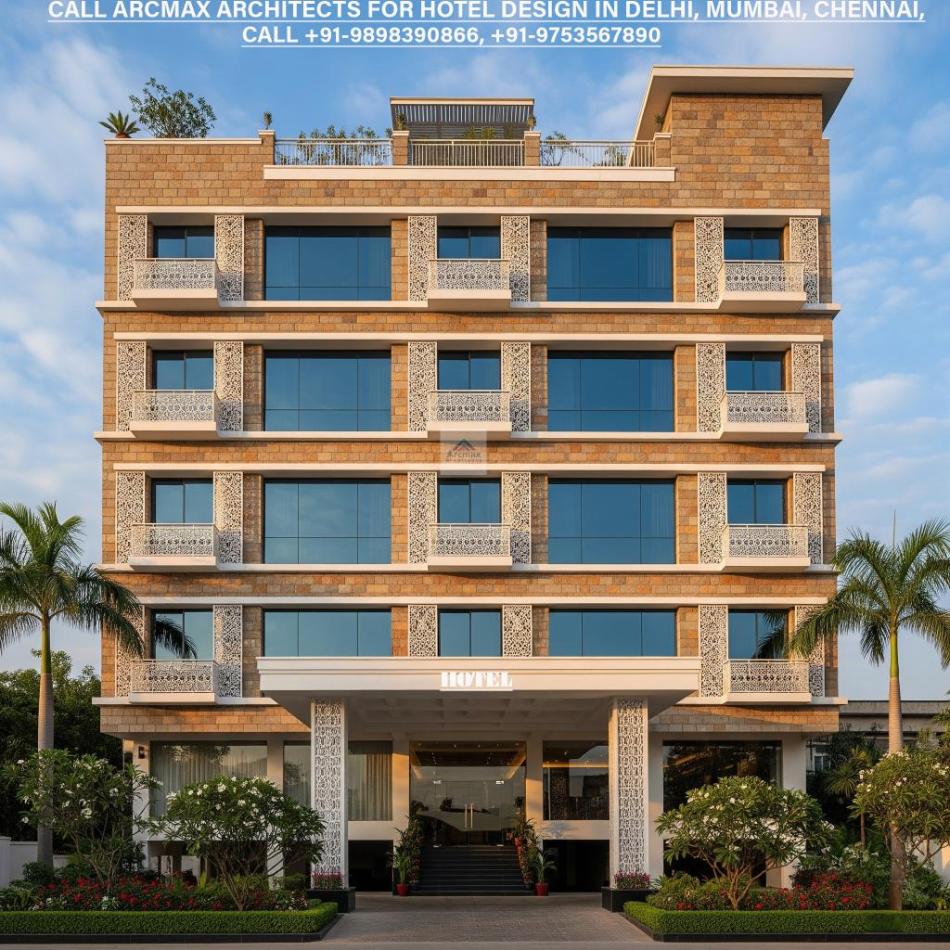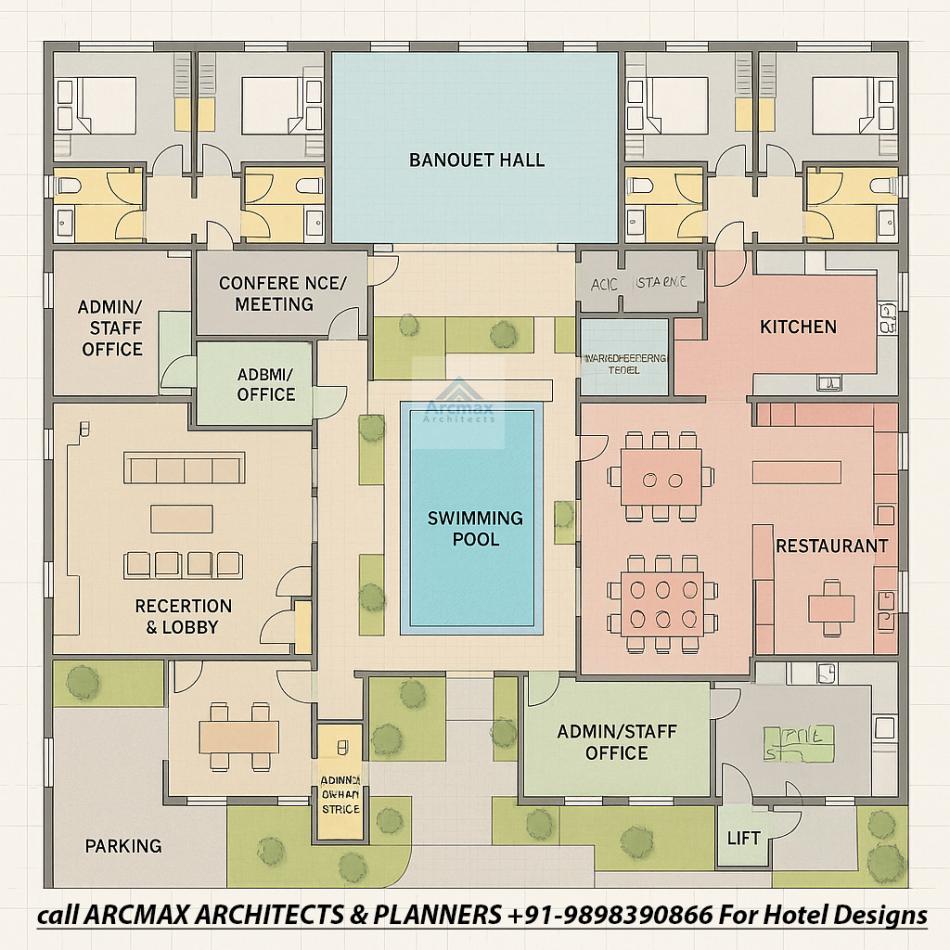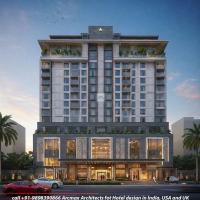Bakeri City, Pincode: 380015 Ahmedabad, Gujarat, India,
244 Madison Avenue, New York, United States
Our Client


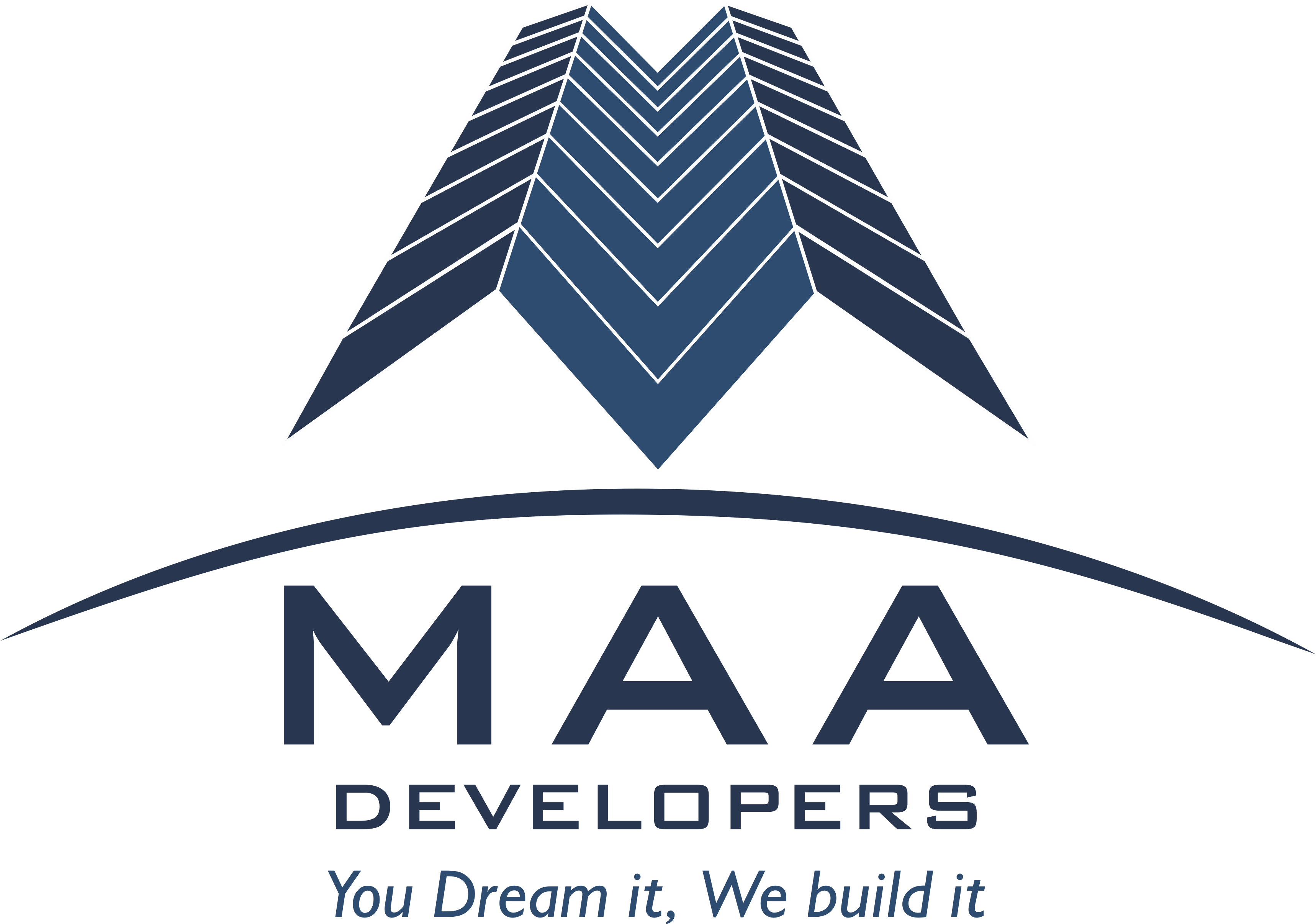



Best Architects for business and conference hotel design in India, USA, UK and Africa
Designing and planning business and conference hotels requires a strategic approach that caters to the specific needs of business travelers and event organizers. These hotels must combine functionality with comfort, providing spaces that facilitate work, networking, and relaxation. Here are key considerations and innovative strategies for business and conference hotel design and planning:
1. Strategic Location and Accessibility
- Proximity to Business Hubs: Situate the hotel near business districts, airports, and transportation links to offer convenience to traveling professionals.
- Accessibility: Ensure easy access for all guests, including those with disabilities, with considerations for parking, public transportation, and airport shuttles.
2. Flexible Conference and Meeting Spaces
- Versatile Event Spaces: Design conference rooms and event spaces that are adaptable, with movable walls and modular furniture to accommodate events of varying sizes.
- Technology Integration: Equip meeting rooms with state-of-the-art audio-visual equipment, high-speed internet, and teleconferencing facilities to support seamless presentations and global connectivity.
3. Efficient Guest Rooms and Workspaces
- Functional Design: Create guest rooms that double as efficient workspaces, with ample outlets, strong Wi-Fi, ergonomic furniture, and adequate lighting.
- Quiet Zones: Designate quiet zones or floors for guests who need to work without distractions, enhancing their productivity and stay experience.
4. Networking and Social Spaces
- Communal Areas: Develop inviting communal areas, such as lounges and cafes, where guests can work, network, or relax in a more informal setting.
- Outdoor Spaces: Incorporate terraces, gardens, or rooftop spaces for breaks, informal meetings, or networking events, adding value to the guest experience.
5. Sustainability and Wellness
- Green Practices: Implement sustainable design practices, such as energy-efficient systems and water-saving fixtures, to appeal to environmentally conscious businesses and guests.
- Wellness Facilities: Offer wellness facilities, including gyms, spas, and healthy dining options, supporting the well-being of guests during their stay.
6. Advanced Technology Solutions
- Mobile Integration: Utilize mobile technology for check-in/out, room access, and personalized control over room settings, catering to the tech-savvy business traveler.
- Event Management Tools: Provide advanced booking and event management tools that allow organizers to plan and manage their events with ease and efficiency.
7. Catering and Dining Options
- Flexible Catering Services: Offer versatile catering services that can adapt to the needs of different events, from coffee breaks to gala dinners.
- Quality Dining: Include dining options that cater to a range of dietary preferences and offer convenience for guests, such as 24-hour room service, quick breakfast options, and quality restaurants.
8. Brand and Experience
- Brand Consistency: Ensure that the design and services offered align with the hotel brand's values and standards, providing a consistent experience for guests.
- Local Experiences: Incorporate local culture and flavors into the hotel's design, dining, and service offerings, enriching the guest's stay and creating memorable experiences.
The design and planning of business and conference hotels demand a multifaceted approach that prioritizes convenience, functionality, and comfort. By focusing on strategic location, versatile event spaces, efficient work environments, and the integration of technology and wellness, hotels can cater effectively to the needs of business travelers and conference attendees. These considerations, combined with a commitment to sustainability and local experiences, will ensure that business and conference hotels remain competitive and appealing to their target audience.
Our Online Hotel design services:
Hire online for 5 star Hotel design and Planning services worldwide
Hire online for 3 star Hotel design and Planning services worldwide
Hire online for apartment Hotel design and Planning services worldwide

